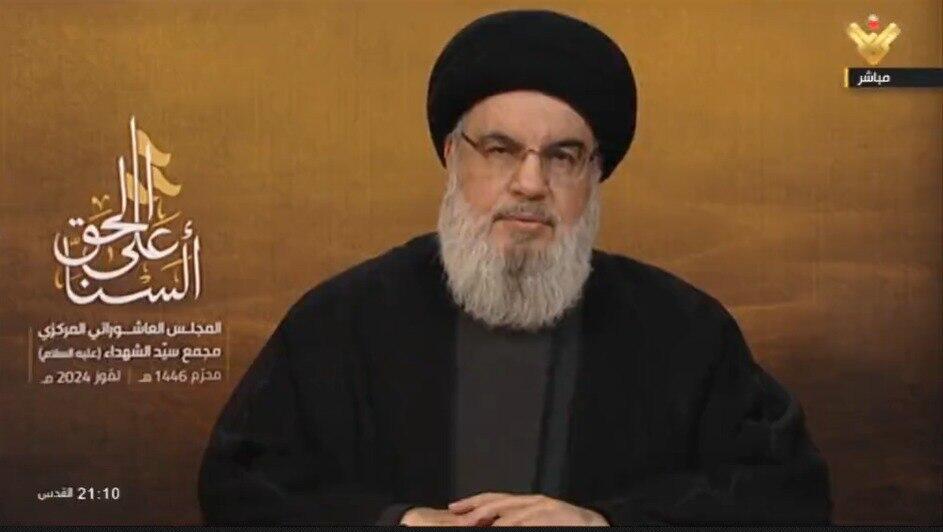One of the first actions taken by Iran's new president, Masoud Pezeshkian, was to send a letter of encouragement to Hezbollah leader Hassan Nasrallah. The president in Tehran pledged, "Our support continues," "We will continue to support Lebanese resistance" and "We will continue to support Hezbollah against the Zionist regime."
What does this mean in practice? Nothing. The Iranian president lacks the authority to deploy military forces or issue directives on foreign policy. His powers are focused on domestic issues, the economic crisis and urgent matters concerning women's status (which he promises to improve) and the situation in universities.
So, why did the newly inaugurated president bother to send this message to Hezbollah, which was also broadcast by Iranian media? It is likely that behind the scenes, there was a decision to emphasize Iran's commitment to Nasrallah and Hezbollah's leaders, given the election of a reformist president.
Attention should be given to the number of assassinations carried out by Israel in Lebanon since October 8. Surprisingly, it is Hezbollah that reveals the figure: 453 of its fighters have been killed as of Tuesday, and many more (exact numbers are not provided) have been injured. Secretary-General Nasrallah insists that even after these losses, his organization has 100,000 fighters. Israel asserts that this number is far from reality.
Nasrallah claims that many fighters are eager to join Hezbollah, including militiamen from Iraq and Syria, mercenaries from Afghanistan and Pakistan and Houthi rebels from Yemen. However, Nasrallah is declining their help. The fighting against Israel is now focused on aerial attacks. Nevertheless, security around Nasrallah has tightened in the past two weeks. He no longer feels immune to a surprise ground assassination attempt.
The latest Hezbollah member to be killed, Yasser Nimr Qarnabsh, who was the former bodyguard of the Hezbollah leader, found his demise unexpectedly Tuesday after a precise strike near the Syrian capital. This indicates, once again, that Israel is well-equipped with excellent intelligence; Hezbollah is unable, despite its efforts, to predict the next assassination; it does not know who is on Israel's target list; and it cannot thwart the attacks.
Tehran strictly forbids Hezbollah from withdrawing its forces beyond the Litani River. This stance was evident when U.S. envoy Amos Hochstein left Lebanon empty-handed once again.
According to a recent report by Asharq Al-Awsat, senior Hezbollah officials initially planned to stay on the sidelines of the war between the IDF and Hamas, offering only verbal support to Hamas and Palestinian Islamic Jihad. However, the office of Iran's Supreme Leader Khamenei instructed Hezbollah to open a symbolic front against Israel as early as October 8.
Currently, Tehran strictly forbids Hezbollah from withdrawing its forces beyond the Litani River. Despite Israel's demands, Iran has ordered Hezbollah not to comply. This stance was evident when U.S. envoy Amos Hochstein left Lebanon empty-handed once again.
From Iran and Hezbollah's perspectives, the situation of attrition without a full-scale war, which has led Israelis in the north to flee their homes, is the ideal scenario. Khamenei's office does not believe in Hezbollah's ability to win an all-out war. Hezbollah also favors this war of attrition, as the displacement of southern Lebanese residents allows them to convert civilian homes into weapon and ammunition storage, disguising their fighters as civilians.
It remains unclear how long this tenuous situation will last. Despite the noise and threats, Israel is neither willing nor able to declare an all-out war on Lebanon. Meanwhile, Hezbollah and Iran remain vigilant, anticipating that a potential change in the Israeli government might result in a less adventurous and more moderate administration.



